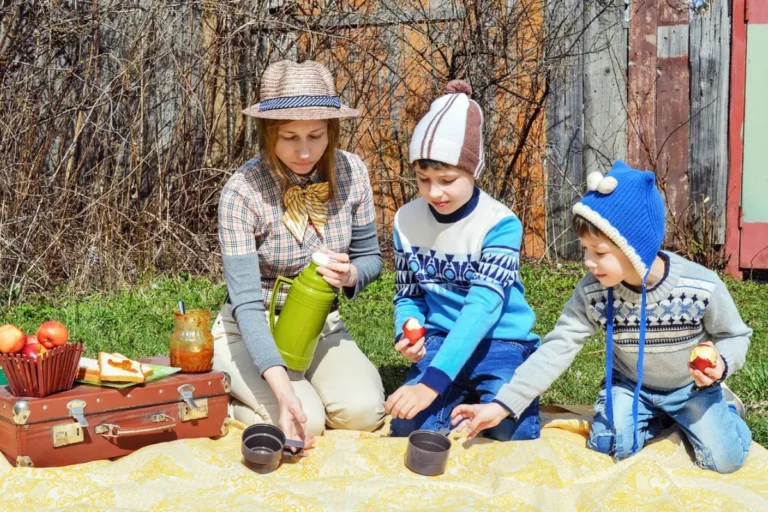Diwali Paragraph In English for Class 5-9
Diwali, the Festival of Lights, illuminates hearts and homes across the globe. This cherished celebration, rich in tradition and mythology, offers more than just aesthetic delight. Discover its profound significance and how millions partake in its vibrant rituals. Join us on a luminous journey through Diwali’s enchanting narrative.
In this article, we have provided 100, 150, and 200-word Diwali paragraphs in English topic.
Diwali Paragraph In English 100 Words
Sample-01
Diwali, also known as the Festival of Lights, is a vibrant celebration. It marks the victory of light over darkness and good over evil. This festival spans five days and is celebrated by millions around the world. The highlight is the lighting of clay lamps called ‘diyas’. These are set around homes, creating a warm, inviting glow. Families gather to share meals, sweets, and gifts. They also enjoy spectacular fireworks displays that light up the night sky. The excitement around Diwali brings together communities, fostering a sense of unity and joy. It’s a time for reflection, forgiveness, and hope for new beginnings.
Sample-02
During Diwali, the air fills with a festive spirit, captivating everyone’s attention. Homes are beautifully decorated with rangoli and intricate patterns made from colored powders and flowers. These artworks are believed to welcome the goddess Lakshmi, who brings prosperity. Families wear new clothes and participate in prayers, seeking blessings for the coming year. Delicious feasts are prepared, featuring a variety of traditional dishes and desserts. Children especially look forward to Diwali for the fun of bursting crackers with friends. The festival not only celebrates the return of Lord Rama in the epic Ramayana but also strengthens familial bonds through shared rituals and stories.
Sample-03
Diwali is not just about external lights; it’s a time to illuminate the soul with love and kindness. This festival encourages giving and caring, seen through acts like distributing sweets and helping those in need. The preparation begins weeks in advance, with families cleaning and decorating their homes to invite positive energy. Special ceremonies involve chanting mantras and offering prayers to various deities. The night sky becomes a canvas of colors with fireworks that thrill onlookers. Each burst of color brings awe and wonder, making Diwali one of the most beloved festivals. It’s a time when hearts light up as brightly as the lamps that flicker in the dark.
Diwali Paragraph In English 150 Words
Sample-01
Diwali, known as the Festival of Lights, marks a significant celebration in Hindu culture that captivates hearts with its message of hope and renewal. This festival symbolizes the triumph of light over darkness, good over evil, and knowledge over ignorance. Spanning five days, it begins with Dhanteras, a day when people buy new items, believing it brings prosperity. The main event features homes adorned with oil lamps, which are said to guide the goddess Lakshmi into people’s residences, ensuring prosperity for the coming year. Fireworks dazzle the night sky, adding to the spectacle, while families gather to share meals, exchange gifts, and enjoy cultural performances. This tradition not only brightens the environment but also strengthens bonds among loved ones. The celebration is a time for reflection, forgiveness, and fostering new beginnings, making Diwali a cherished event across generations.
Sample-02
Each year, millions of people come together to celebrate Diwali, the enchanting festival of lights that not only ushers in a new start but also heralds the victory of righteousness over treachery. The festival revolves around intricate rituals and vibrant displays, captivating both participants and onlookers. During Diwali, houses are adorned with colorful rangoli artworks, which are intricate patterns made on the ground using colored powders or flowers, creating a welcoming path for divine blessings. The air fills with the aroma of festive foods as families prepare traditional dishes that are both delicious and symbolic, such as sweets like laddoos and barfis. Additionally, people visit temples to offer prayers, seeking spiritual renewal and divine guidance. The exchange of sweet delicacies fosters community spirit and goodwill, and Diwali’s profound cultural significance makes it a time of great joy and communal harmony.
Sample-03
Diwali, a luminous beacon in the cultural calendar, celebrates new beginnings and the enlightening power of knowledge. During this festival, participants perform pujas (prayers) to honor Lakshmi, the goddess of wealth, and Ganesha, the remover of obstacles, seeking their blessings for prosperity and success. Educational institutions often hold special events to educate students about the ethical values associated with Diwali, emphasizing virtues such as respect, compassion, and perseverance. Lighting diyas (lamps) symbolize an individual’s effort to dispel ignorance and embrace wisdom through enlightenment. This period also sees people engaging in charitable acts, providing food, clothing, and other necessities to the less fortunate, reinforcing the principles of community support and kindness. The festive period concludes with Bhai Dooj, another significant day that underscores the importance of familial ties, especially the special bond between siblings.
Diwali Paragraph In English 200 Words
Sample-01
Diwali, the Festival of Lights, shines as a beacon of joy and renewal across India. Celebrated in the autumn months, this age-old festival symbolizes the triumph of light over darkness and good over evil. It begins with Dhanteras, a day marked for prosperity, where people buy gold or silver as a sign of good fortune. The following days are filled with vibrant decorations, with homes festooned in colorful rangoli and gleaming diyas. Fireworks light up the night sky, creating a spectacle of colors and sounds, while families gather to share sumptuous feasts. A significant aspect of Diwali is the worship of Lakshmi, the goddess of wealth, who is believed to visit the cleanest and most brightly lit homes. This festival also fosters a sense of community, as people visit each other’s homes to exchange sweets and gifts, thereby strengthening bonds. Additionally, Diwali marks a major shopping period in India, boosting the economy through consumer expenditure in retail and gold. Thus, Diwali is not just a cultural celebration but a lifeline for small businesses and local artisans who craft Diwali-specific goods.
Sample-02
Across the globe, Diwali illuminates hearts with its emphasis on cultural rituals and historical legends. This five-day festival starts with Dhanteras, where people indulge in purchasing metals, believing it wards off ill fate. The main day of Diwali is dedicated to celebrating Lord Rama’s return to Ayodhya after 14 years of exile, a story from the epic Ramayana. Families light up their homes with oil lamps, which serve as a guide for Rama and symbolize a way to ward off evil spirits. On this auspicious day, many also ignite firecrackers to celebrate victory over nefarious forces. The exchange of sweets and gifts during Diwali nurtures kinship and goodwill among people. Another important day is Govardhan Puja, observed in honor of Lord Krishna’s divine feat of lifting Govardhan Hill to shelter his village from torrential rains. This day underscores the theme of protection and reliance on divine providence. As Diwali culminates with Bhai Dooj, siblings celebrate their bond, with sisters praying for their brothers’ long lives. Through its varied rituals, Diwali not only celebrates ancient victories but also the everyday joys of life, love, and kinship.
Sample-03
Diwali, a kaleidoscope of cultural richness and spiritual profundity, is celebrated with great enthusiasm worldwide. This festival of lights predominantly honors the victory of knowledge over ignorance, symbolized by the myriad of lamps illuminating households and public places. On the first day, known as Dhanteras, people clean their homes and prepare for the arrival of Lakshmi, the goddess of wealth, by creating intricate rangoli designs and lighting lamps. The second day, Naraka Chaturdashi, commemorates the defeat of the demon Naraka by Lord Krishna, reinforcing the theme of good prevailing over evil. The third day, the most awaited, sees families performing traditional pujas, offering prayers to Lakshmi to bring prosperity and happiness in the coming year. This day is filled with joy, from dressing in new clothes to enjoying fireworks and feasting on delicious food. Diwali also emphasizes forgiveness, with individuals reaching out to mend strained relationships, reflecting a rejuvenation of spirit and community. The festival concludes with Bhai Dooj, celebrating the cherished bonds between brothers and sisters. Each moment of Diwali is imbued with cultural significance and moral values, making it a profound celebration of life and eternal hope.
Conclusion
Diwali, the Festival of Lights, unites hearts with its universal themes of good prevailing over evil and light conquering darkness. It is a time for reflection, renewal, and joyous celebration across diverse cultures, symbolizing hope and new beginnings.
Embracing these traditions, individuals, and communities worldwide find common ground during Diwali. The festival fosters a spirit of harmony and compassion, reinforcing the importance of togetherness in our increasingly interconnected world.



